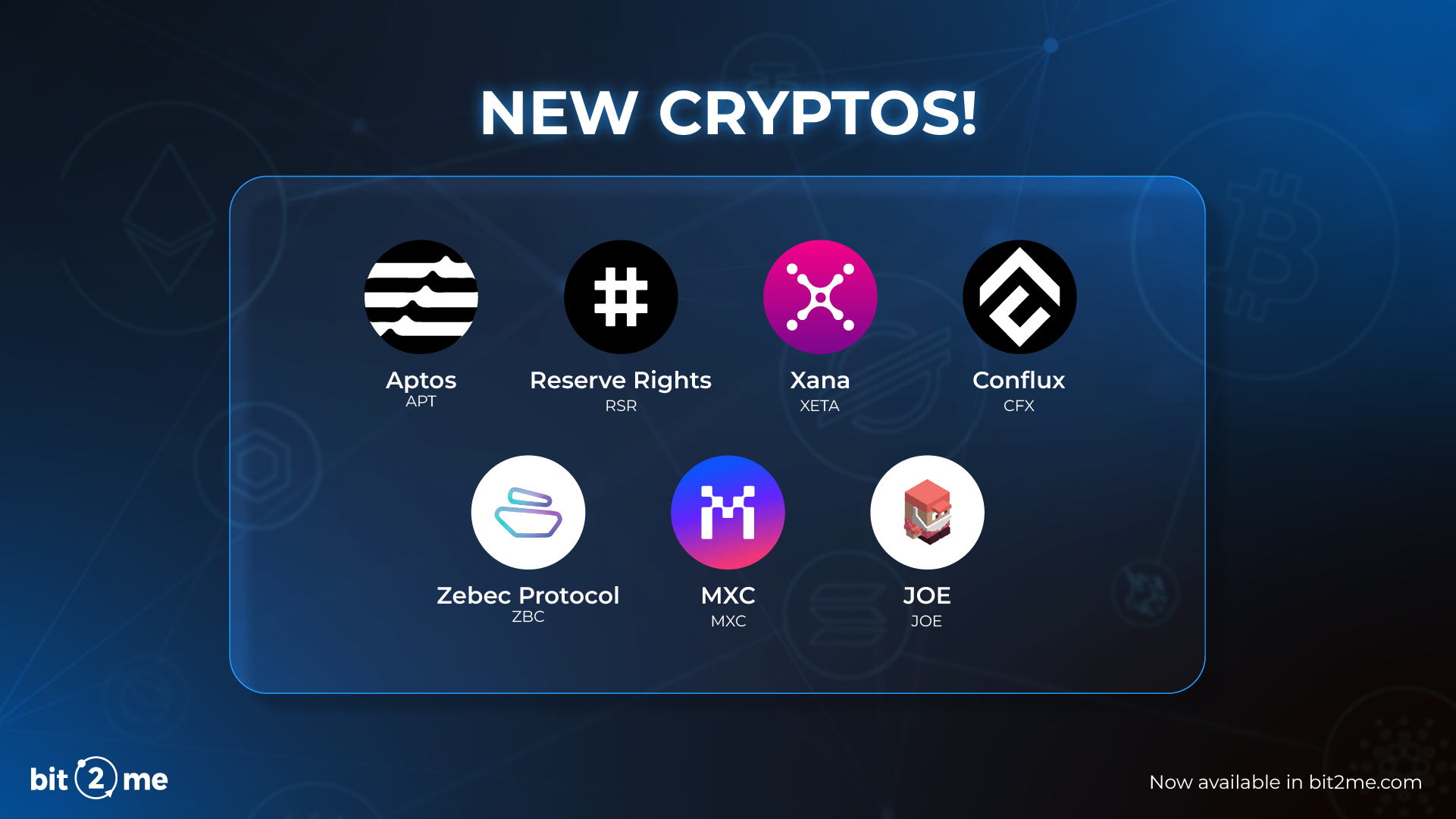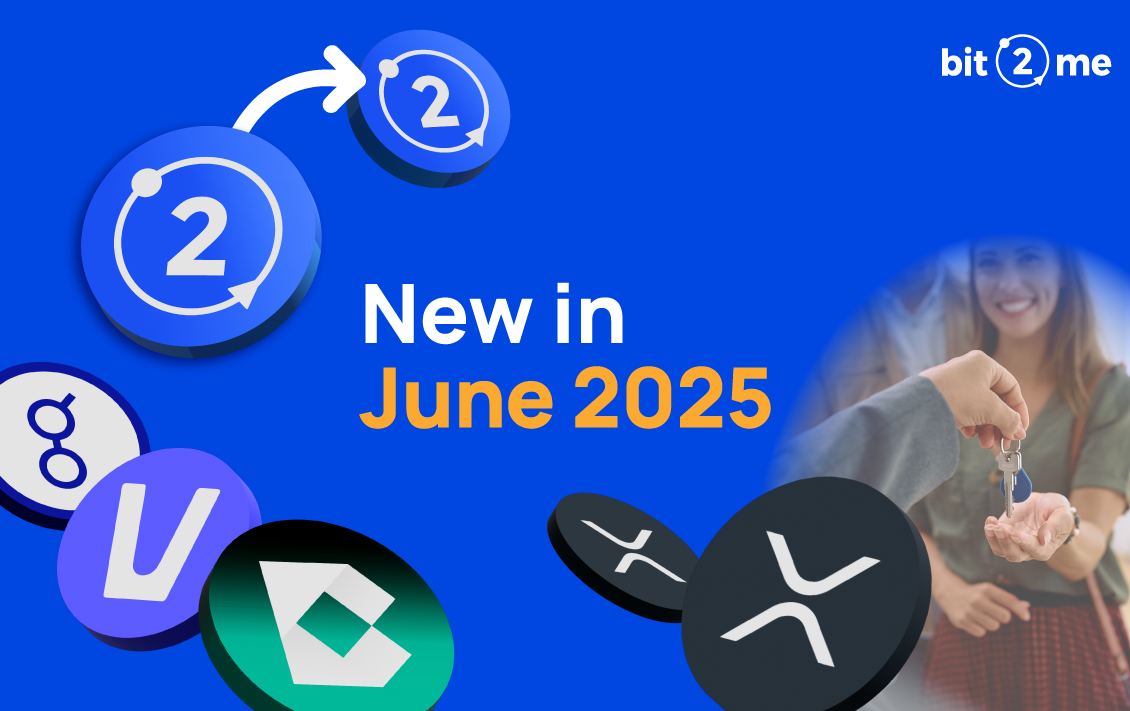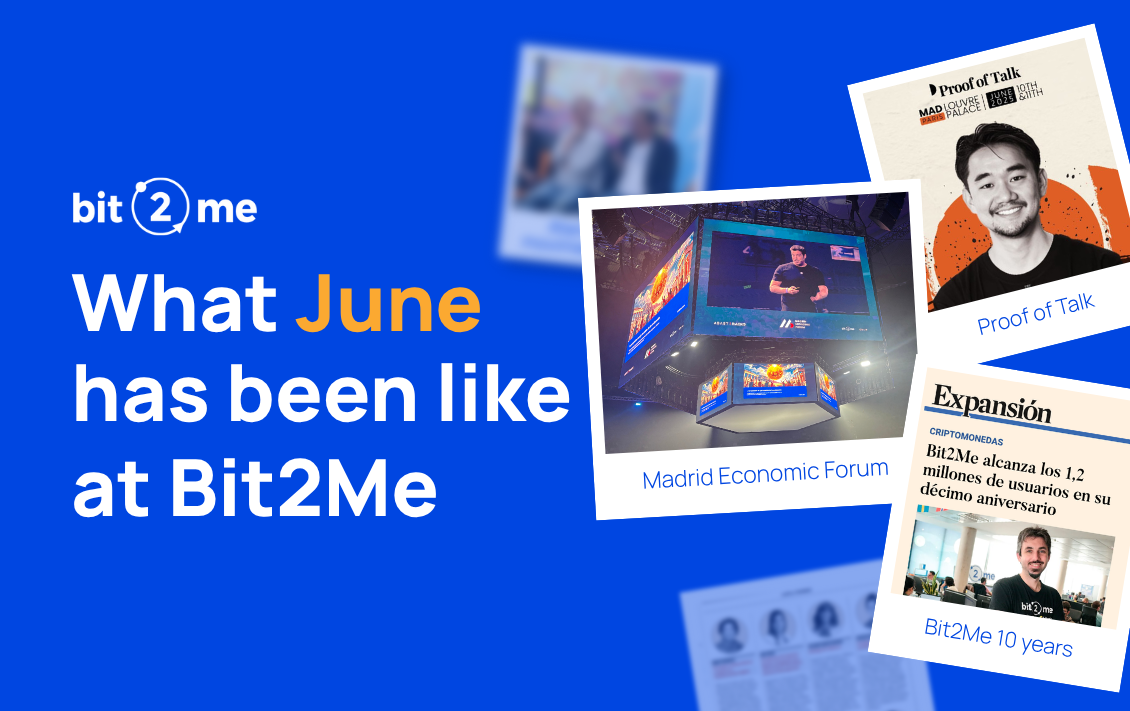At Bit2Me, we have added 7 new cryptocurrencies to our platform to continue expanding the options we offer to our customers and users.
We now offer access to 189 different cryptocurrencies and tokens from the blockchain ecosystem.
Our goal has always been and continues to be to improve the accessibility of the crypto industry for people from all over the world, offering easy and intuitive products and services for everyone.
Learn more about the new cryptocurrencies available at Bit2Me
Aptos (APT)
The APT token is the native token of the Aptos network, a blockchain protocol based on the Proof of Stake (PoS) consensus mechanism, which uses an innovative smart contract programming language called Move.
Aptos developers envision creating a blockchain that will drive the widespread adoption of Web3 and power the building of an ecosystem of decentralised applications (DApps) dedicated to solving real-world problems.
The Aptos blockchain enables the development of blockchain applications with a focus on the Web3 user experience. This protocol uses a modular and flexible architecture, seeking to push the boundaries of reliability, security and performance to provide world-class support for existing and emerging use cases.
Reserve Rights (RSR)
Reserve Rights is a platform that enables the creation of stable, secured, performance and asset-backed coins on Ethereum. Its native token, RSR, is an ERC-20 token used to secure stablecoins developed on the Reserve protocol, also called RTokens. RSR is also used as a governance token to vote for improvements and changes to the configuration of stablecoins in Reserve.
This protocol allows anyone to create new stablecoins secured without permission by interacting with the protocol’s smart contracts. Reserve Rights applies a “Factory smart contracts” system that allows users to deploy their own smart contracts.
Xana (XETA)
Xana is a blockchain sidechain custom-designed for the Metaverse. It is an Ethereum Virtual Machine (EVM) compatible sidechain, which facilitates the interaction of global institutions, governments and brands with the virtual world.
As a blockchain infrastructure, Xana offers a robust network centred on the Metaverse. Xana has a native token, called XETA, which has many use cases within the Xana ecosystem, including staking. XENA holders can unlock different utilities and benefits, such as access to games, NFT, DeFi and branded apps, by staking their XENA tokens.
This blockchain project also offers a smartphone-optimised metaverse app, a marketplace for trading and trading NFT tokens, and a platform that facilitates the construction of avatars, virtual worlds, games and more.
Conflux (CFX)
Conflux Network is a decentralised, permissionless blockchain network based on the Tree-Graph consensus algorithm, which allows blocks and transactions to be processed in parallel to increase network performance and scalability. Tree-Graph uses parallel processing of blocks and transactions to reduce confirmation times and increase the number of transactions per second (TPS) processed.
This blockchain was designed as a catalyst for new technologies to drive the building of a borderless economy.
The CFX token, native to this platform, allows its holders to pay transaction fees within the network, in addition to earning rewards through staking, renting storage and participating in the governance of the Conflux Network. CFX is also used to provide incentives and reward miners who ensure the secure operation of this blockchain.
Zebec Protocol (ZBC)
Zebec is a protocol designed to transform the way money moves across the blockchain. This project is presented as a DeFi protocol that enables seamless, frictionless, real-time payment flows.
Zebec Protocol users can completely transform the way they get paid, move or use their money and even transform the way they invest by allocating a percentage or all of their investment accounts or 401k plans to cryptocurrencies, farms, DeFi and more.
MXC (MXC)
MXC is a Proof of Participation (PoP) based protocol that was designed to power Web3. This protocol combines the power of miners with Metaverse technologies to build a free, decentralised global data network.
The MXC token, based on Ethereum’s ERC-20 standard, is the fuel for the MXC protocol, which allows users to transact data between IoT (Internet of Things) devices. This token facilitates M2M transactions within the MX protocol, which has a variety of use cases, such as reducing the cost of services like tokenised car sharing or detailed tracking of waste disposal systems to drive the construction of smart cities, among others.
JOE (JOE)
JOE is the native token of the decentralised exchange Trader Joe, built on the Avalanche blockchain. It is a DEX one-stop-shop that aims to simplify access to decentralised finance (DeFi).
Trader Joe provides its users with a complete DeFi experience, through access to a broad decentralised ecosystem, including trading, liquidity pooling, staking, farms, NFT, lending and more. To date, this DEX has facilitated trades for approximately 2 million users, processing more than $88 billion in traded volume.

 Author
Author


